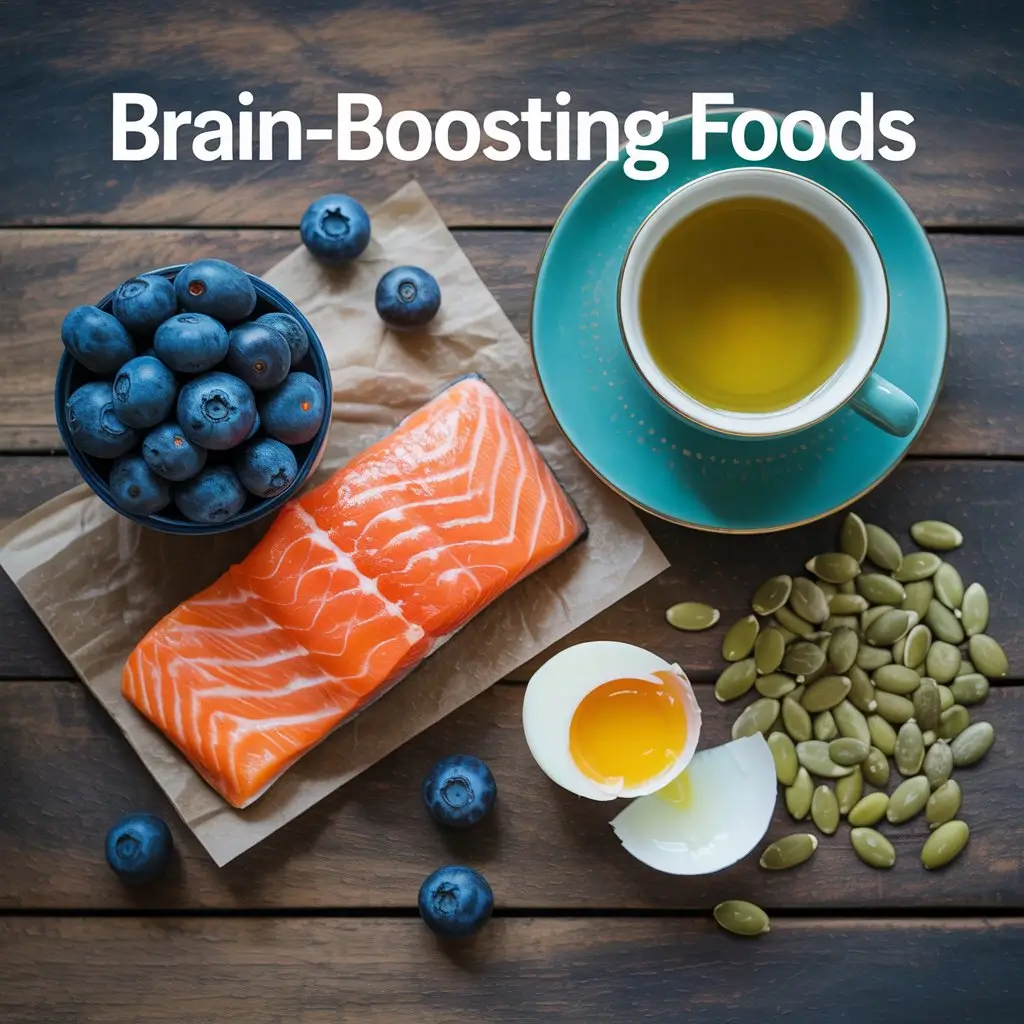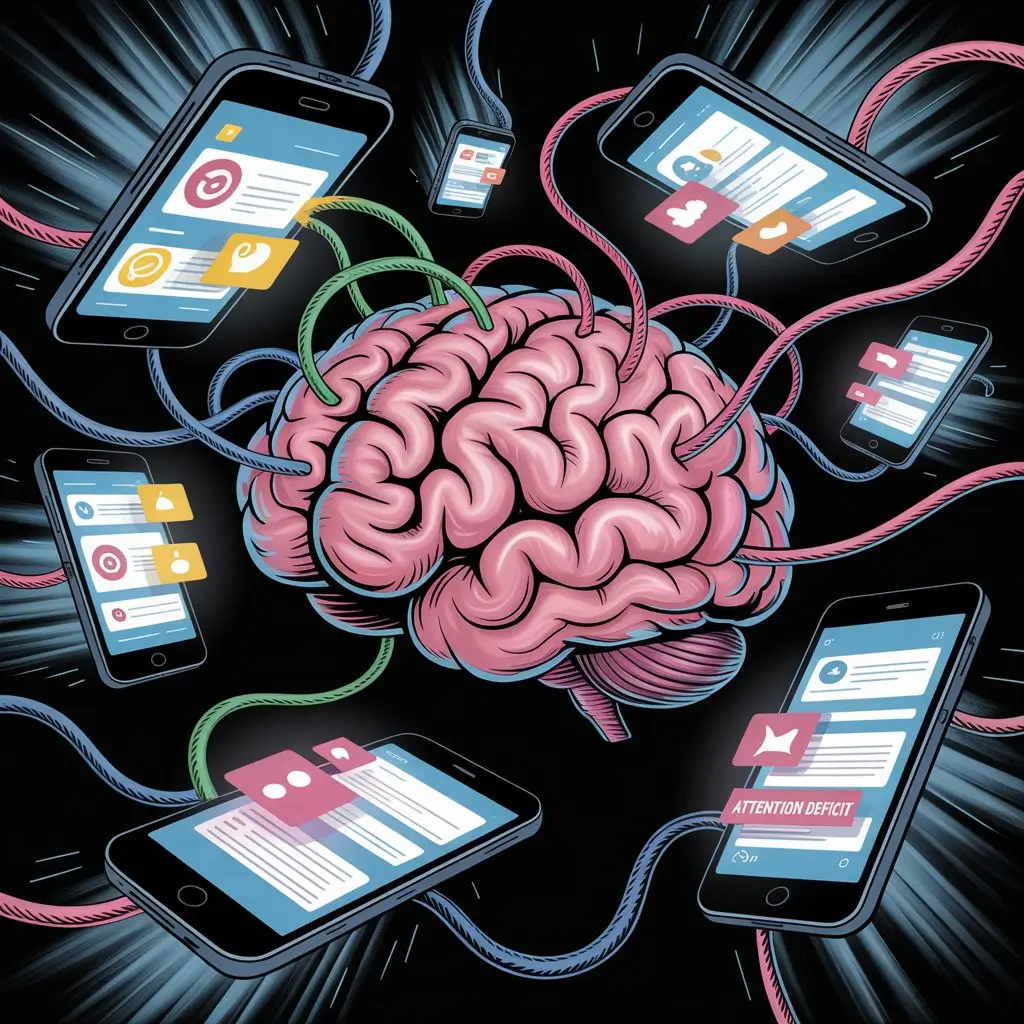Have you been feeling mentally scattered lately? Struggling to finish a single task without bouncing between notifications, tabs, and thoughts? You’re not alone. In the modern digital world, where alerts buzz and screens blink every few seconds, your attention span has likely taken a hit.
But here’s the good news: your brain isn’t broken, it’s just overwhelmed. And just like a muscle, your focus can be retrained and strengthened. This guide will show you exactly how to rebuild your attention span in the age of distraction, using practical strategies grounded in science and daily life.
Why Your Attention Span Is Shrinking
Before you can fix the problem, you need to understand it. Your brain isn’t naturally scattered, it’s being reshaped by how you interact with the world around you.
The Brain’s Chemical Traps
- Dopamine loops: Each time you check a message or scroll social media, you trigger a small dopamine release. Over time, your brain starts chasing that hit, constantly.
- Task-switching overload: You think you’re multitasking, but you’re actually reducing your performance. Switching between tasks can lower your productivity by up to 40%.
- Attention residue: When you jump from one thing to another, part of your mind stays behind. This lingering mental clutter makes it harder to fully focus on what’s next.
📊 According to a Microsoft research study, the average attention span has been narrowed to 8 seconds only, a condition below that of a goldfish.
External Triggers You’re Exposed To
- Endless notifications: Each ding steals a piece of your focus.
- Digital overstimulation: From breaking news to TikTok reels, your brain rarely rests.
- Workplace demands: Many environments push for multitasking and speed, not deep work or clarity.
Signs Your Focus Needs a Reset
So how do you know your attention span is in trouble? Here are some red flags to watch for:
- You feel anxious or restless during quiet moments.
- You find it hard to finish a book or even a short article.
- You frequently open your phone without a reason.
- You leave tasks halfway done and forget why you started them.
- You feel mentally exhausted, even on days with little output.
Quick Focus Check
Answer these questions honestly:
- Do you check your phone first thing in the morning?
- Do you struggle to stay focused on one task for 15 minutes?
- Do you feel twitchy when there’s “nothing to do”?
If you nodded “yes” to two or more, it’s time to take action.

How to Rebuild Your Attention Span (Step-by-Step)
You don’t need a full digital detox to start regaining your focus. These steps are realistic, doable, and backed by behavioral science.
Step 1: Cut the Digital Noise
Keyword: digital detox, reduce screen time
You can’t concentrate if your devices are constantly demanding your attention. Reclaim control with these habits:
- Turn off non-essential notifications.
- Use “Do Not Disturb” mode during work or reading time.
- Remove distracting apps from your home screen, or delete them altogether.
- Install apps like Forest, Freedom, or One Sec to limit screen cravings.
🕑 Try this: Commit to a 1-hour phone-free block each day. Build from there.
Step 2: Retrain Your Brain with Small Focus Blocks
Keyword: focus-building habits
Think of your attention span like a muscle. You wouldn’t try to lift 100kg on day one, so don’t expect instant deep focus either.
- Start with 5-minute focus sessions. Use a timer.
- Gradually work up to 25-30 minute blocks using the Pomodoro Technique.
- Track your progress in a notebook or app.
💡 Bonus tip: Always reward yourself after completing a focus session. Your brain responds well to positive reinforcement.
Step 3: Eat for Better Brain Function
Keyword: focus-enhancing foods, attention and diet
The food you eat directly affects how well you think. Certain nutrients support memory, clarity, and sustained mental energy.
Table: Brain-Boosting Foods
| Food | Benefit | Why It Helps |
| Blueberries | Boosts memory | High in antioxidants |
| Salmon | Supports brain health | Packed with Omega-3 fats |
| Green tea | Enhances alertness | Contains L-theanine + caffeine |
| Eggs | Improves cognitive function | Rich in choline |
| Pumpkin seeds | Reduces brain fog | Loaded with magnesium & zinc |
Avoid sugar crashes, ultra-processed snacks, and excessive caffeine. Your brain will thank you.
Step 4: Redesign Your Workspace
Keyword: distraction-free environment
Your surroundings matter more than you think. Create a setup that encourages deep focus:
- Clear your desk of non-essentials.
- Use noise-canceling headphones or play ambient sounds.
- Face away from high-traffic areas if possible.
- Turn off email and chat pop-ups during work blocks.
Add a plant or calming visual nearby, it helps reduce mental clutter.

Long-Term Habits That Keep You Focused
Short-term fixes help, but long-term habits transform your mind over time.
Meditate Daily (Even If Just for 5 Minutes)
Keyword: mindfulness for attention
You don’t need to sit on a mountaintop. Just sit quietly and breathe:
- Focus on your breath, not your thoughts.
- Use guided meditation apps like Headspace, Balance, or Insight Timer.
- Start with 2-5 minutes and build slowly.
Research shows that mindfulness practice increases attention span, reduces stress, and improves memory.
Prioritize Sleep and Movement
Poor sleep destroys your ability to focus. Exercise increases blood flow to the brain and boosts mental performance.
- Aim for 7–9 hours of sleep per night.
- Walk or stretch during breaks to refresh your mind.
- Avoid screens 1 hour before bedtime.
Tools and Apps That Train Focus
You don’t need to do it alone. These tools can support your journey:
- RescueTime – Analyzes where your time goes online.
- Cold Turkey – Blocks distracting sites.
- Notion / Evernote – Organize your tasks and notes to clear brain clutter.
- Focusmate – Work alongside a virtual accountability partner.
Frequently Asked Questions (FAQ)
How long does it take to rebuild your attention span?
Most people notice changes in 2 to 4 weeks if they follow consistent habits. Your brain adapts faster than you might think.
Can meditation really help improve focus?
Yes. Even short sessions reduce mental chatter and enhance cognitive control.
What’s the best time of day to do focus training?
Morning, after waking and before distractions hit, is ideal for most people.
Can I rebuild my attention span if I’ve been distracted for years?
Absolutely. Your brain is capable of change at any age thanks to neuroplasticity.
Conclusion: Your Focus Is Your Superpower
You live in a world that profits from your distraction. But that doesn’t mean you have to surrender your attention. By making small, intentional changes,turning off notifications, eating brain-boosting foods, meditating, or just practicing silence, you begin to reclaim your mind.
Your attention span isn’t just a mental tool. It’s a reflection of how present, creative, and powerful you are in your daily life. The more you train it, the more clarity and peace you’ll experience, not just at work, but everywhere.
🔁 Now It’s Your Turn
Try one small change today. Silence your phone for an hour, take a mindful walk, or just sit in stillness. Then come back tomorrow and try another.
👋 Enjoyed this guide? Leave a comment below or share it with a friend who needs to reclaim their focus too. And if you want more science-backed tips for mental clarity and personal growth, subscribe to the newsletter.
You’ve got this, one focused moment at a time. ➤


1 thought on “Rebuild Your Attention Span: 5 Simple Steps That Work”